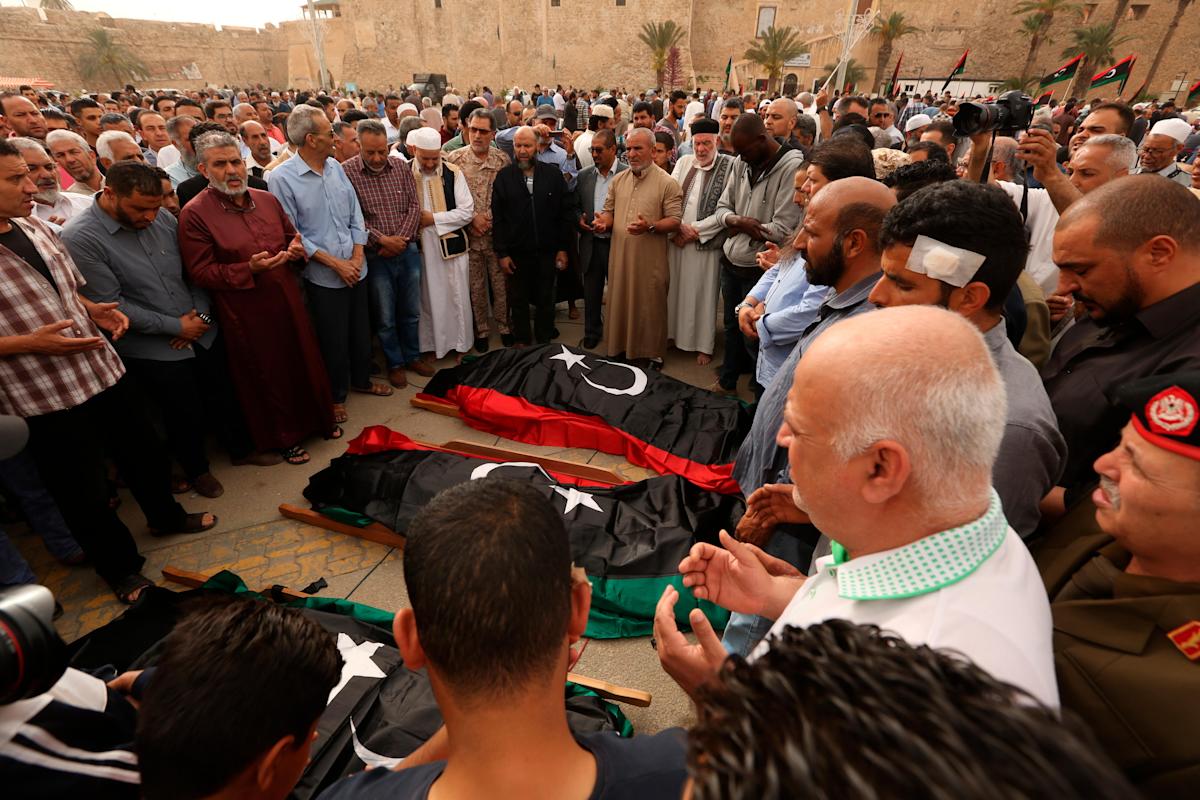
CAIRO (AP) — Human Rights Watch on Tuesday called for the International Criminal Court to investigate allegations of the use of landmines in 2019 by Russian paramilitaries fighting in Libya.
According to the New York-based watchdog, new data has emerged from Libyan demining groups linking mercenaries from Russia’s Wagner Group to the use of “banned booby traps” in Libya during an offensive by east-based Libyan forces trying to capture the capital of Tripoli from rival militias.
The Wagner Group backed the offensive of the east-based forces led by commander Khalifa Hifter, who was also supported at the time by the United Arab Emirates, Egypt and Russia. Hifter’s offensive collapsed in the spring of 2020, when Turkey and Qatar stepped up their military support to his rivals in western Libya.
Libya plunged into turmoil after a NATO-backed uprising in 2011 toppled dictator Moammar Gadhafi, who was later killed. It has for years been split between rival administrations, each backed by different militias and foreign powers.
Lama Fakih, HRW’s director for Mideast and North Africa, said a “transparent and international” inquiry is needed to look into the use of land mines around Tripoli.
The group said that a demining group with the Tripoli-based Defense Ministry reported that mines and other explosive ordnance killed at least 130 people and wounded 196, mostly civilians, between May 2020 and March 2022 in Tripoli’s southern suburbs.
HRW cited a tablet left on a Libyan battlefield by a Wagner mercenary that contained maps of the locations of 35 unmarked anti-personnel mines. The tablet was obtained by the BBC in early 2021. A U.N. panel of experts said earlier this week it considers the device to be authentic.




